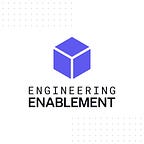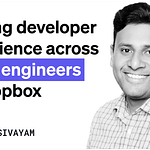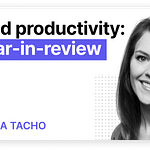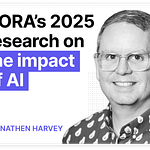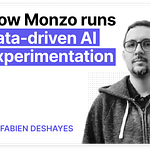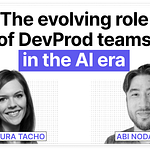Listen and watch now on YouTube, Apple, and Spotify.
Brian Houck from Microsoft returns to discuss effective strategies for driving AI adoption among software development teams. Brian shares his insights into why the immense hype around AI often serves as a barrier rather than a facilitator for adoption, citing skepticism and inflated expectations among developers. He highlights the most effective approaches, including leadership advocacy, structured training, and cultivating local champions within teams to demonstrate practical use cases.
Brian emphasizes the importance of honest communication about AI's capabilities, avoiding over-promises, and ensuring that teams clearly understand what AI tools are best suited for. Additionally, he discusses common pitfalls, such as placing excessive pressure on individuals through leaderboards and unrealistic mandates, and stresses the importance of framing AI as an assistant rather than a replacement for developer skills. Finally, Brian explores the role of data and metrics in adoption efforts, offering practical advice on how to measure usage effectively and sustainably.
Some Takeaways:
Barriers to AI Adoption
The biggest obstacle to AI adoption in engineering teams is not a lack of tooling or access, but developer skepticism rooted in hype and unrealistic expectations.
30% of developers say their primary concern is that AI tools will not deliver on their promises, which discourages initial or continued use.
When developers try an AI tool and don’t immediately experience transformational results, they often abandon it entirely.
Broader narratives—like AI replacing developers—add to the skepticism, even though only about 10% of developers are actually concerned about job displacement.
The Role of Leadership
Leadership advocacy is a powerful lever for AI adoption. Developers are seven times more likely to be daily users when leaders actively promote and normalize the use of AI tools.
Leaders should clearly communicate which AI tools are approved, what kinds of tasks they’re suitable for, and that developers are encouraged (and expected) to use them.
Messaging that overstates the capabilities of AI tools tends to backfire, creating disappointment and further resistance.
Ongoing communication—rather than one-off announcements—is essential to build trust and maintain momentum.
Team-Level Strategies and Local Champions
Adoption is more successful when it’s supported at the team level through peer learning, not just centralized rollouts.
Developers benefit most when “local champions”—respected, experienced team members—show how they are using AI tools in the context of real workflows.
Organizations that rely on local champions for internal knowledge-sharing see about 22% greater adoption among developers.
Brown bag sessions, peer demos, and informal walkthroughs are especially effective for making AI adoption relevant and practical.
Managers play a key role in identifying early adopters who are both enthusiastic and influential within their teams.
Measurement and Data-Driven Adoption
Successful adoption efforts rely on clear, ongoing measurement—tracking who has installed AI tools, who is actively using them, and how frequently.
Rather than boiling engagement down to a single score, Brian recommends tracking usage at multiple tiers: daily, weekly, monthly, and lapsed users.
Dashboards and scorecards help leaders visualize progress and encourage healthy, team-level competition.
Monitoring usage across groups—not individuals—helps foster psychological safety while still promoting accountability and improvement.
Common Pitfalls and Developer Concerns
Public leaderboards or pressuring individual developers to adopt AI tools can lead to disengagement or mistrust.
Developers often worry that AI-generated code may introduce bugs, vulnerabilities, or degrade quality. This concern is second only to the fear that AI is overhyped.
Some developers fear their skills may atrophy if they rely too heavily on AI; this highlights the need to reframe AI as a partner in development, not a replacement.
Organizations should address these concerns head-on through honest, nuanced messaging that balances enthusiasm with realism.
Long-Term Impact and Ongoing Research
Initial studies show AI tools can improve code-writing efficiency by 5% to 30%, but broader productivity gains are harder to measure due to the multifaceted nature of software engineering work.
Brian highlights the need for more research on how AI impacts long-term code maintainability, especially when it accelerates initial development phases.
Developers still spend only about 14% of their time writing code, so increasing throughput in that slice doesn’t automatically translate into overall productivity gains.
In this episode, we cover:
(00:00) Intro: Why AI hype can hinder adoption among teams
(01:47) Key strategies companies use to successfully implement AI
(04:47) Understanding why adopting AI tools is uniquely challenging
(07:09) How clear and consistent leadership communication boosts AI adoption
(10:46) The value of team leaders ("local champions") demonstrating practical AI use
(14:26) Practical advice for identifying and empowering team champions
(16:31) Common mistakes companies make when encouraging AI adoption
(19:21) Simple technical reminders and nudges that encourage AI use
(20:24) Effective ways to track and measure AI usage through dashboards
(23:18) Working with team leaders and infrastructure teams to promote AI tools
(24:20) Understanding when to shift from adoption efforts to sustained use
(25:59) Insights into the real-world productivity impact of AI
(27:52) Discussing how AI affects long-term code maintenance
(29:02) Updates on ongoing research linking sleep quality to productivity
Where to find Brian Houck:
• LinkedIn: https://www.linkedin.com/in/brianhouck/
• Website: https://www.microsoft.com/en-us/research/people/bhouck/
Where to find Abi Noda:
• LinkedIn: https://www.linkedin.com/in/abinoda
Referenced:


